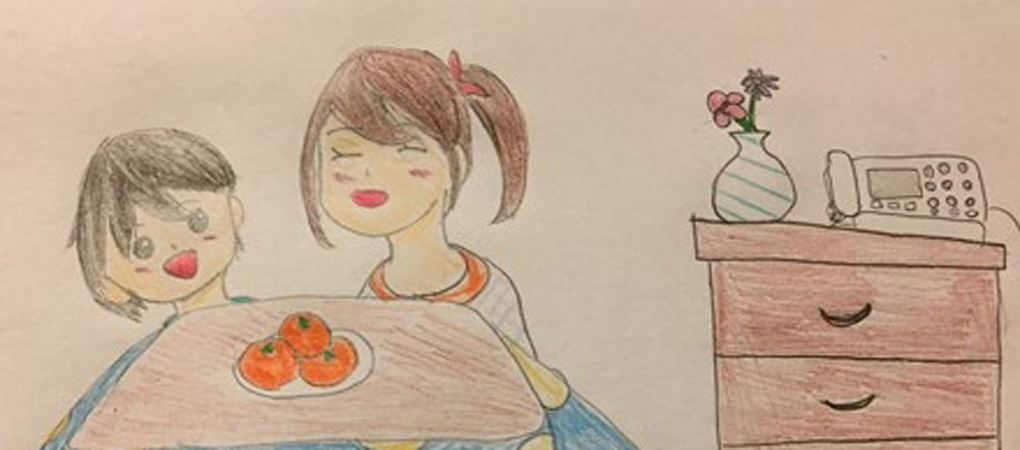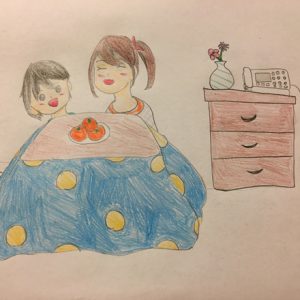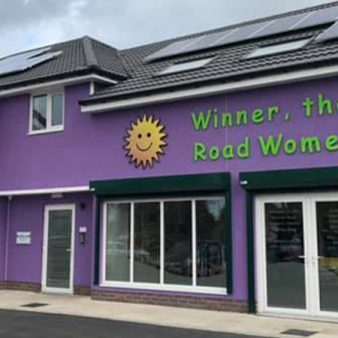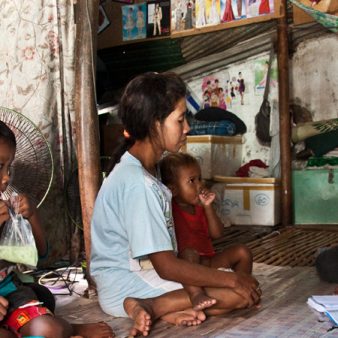Being a single parent is tough wherever you might live, but single mothers in Japan live in a culture that makes them particularly vulnerable to poverty and social isolation. Japanese society is very conservative and it is considered taboo to be a single parent. A culture of shame means single mothers are looked down upon and often hide their situation from friends and family.
Women traditionally stop working when they have a child and it can be very difficult for single mothers to find employment. In nearly 80 per cent of divorces, full custody is awarded to the mother and because there is no system for enforcing child support payments in Japan, single mothers often shoulder the financial burden of bringing up their children alone.
Little Ones – a Tokyo-based non-profit organisation established in 2008 by social activist Koyama Kunihisa – is working hard to support the rising number of single parent families in Japan (90 per cent of which are single mothers) and raise awareness of the growing issue of child poverty.
The number of single mother households in the country rose by around 50 per cent between 1992 and 2016, according to the Ministry of Health, Labour and Welfare. Finding somewhere to live can be especially challenging for these women because landlords are wary of giving tenancies to single mothers, who they assume to be financially unreliable.
The prejudices faced by single mothers have an extremely negative impact on their lives and also on the prospects of their children. According to Ministry of Health statistics, 16 per cent of Japanese children live below the poverty line but among working single-parent households the rate hits 54 per cent, affecting health and educational outcomes.
Little Ones operates an innovative scheme that provides single mothers and their children with safe, affordable and stable housing, while also making use of the nation’s problematic glut of empty homes.
Empty homes crisis
Japan’s population is both ageing and declining. When a family member moves out of their home or dies, their property is often inherited by relatives who have no use for it and view it as a financial burden. A healthy construction industry coupled with a lack of buyers means the resale market is slow. There is no obligation to register ownership of properties in Japan, so owners can simply walk away from an unwanted property and avoid paying inheritance and land taxes. The result is that around nine million homes in Japan (14 per cent of total residential stock) are unoccupied.
The number of vacant or abandoned homes – known as ‘akiya’ – is expected to rise as the population continues to decline. The Nomura Research Institute predicts the number of akiya will reach 21.7 million by 2033 – roughly one-third of all Japan’s homes. To address the growing crisis, the Japanese government passed the Vacant Houses Special Measures Act in 2015 to promote the demolition and reuse of abandoned houses.
Little Ones identified the new law as an opportunity to expand its existing work turning abandoned or unoccupied private houses into affordable homes for single mothers. The organisation works directly with property owners, estate agents and local government to acquire empty homes to renovate and rent out.
Little Ones helps owners of vacant homes apply for a government grant, which covers two-thirds of renovation costs for homes that will be rented to low-income tenants. These costs can be prohibitively high for individuals to meet alone, because the homes must comply with building standards and stringent earthquake regulations.
Once renovated, single mothers sign a two-year rental contract and can request subsequent extensions. Little Ones manages the properties that have been let to single mothers on behalf of the local government. Rent is typically 10 – 20 per cent below market rate but in cities like Tokyo, where rent and living costs are very high, single mothers can struggle to meet the payments, even if they are able to find employment.
Little Ones offers payment plans for tenants who have difficulty paying their rent, enabling them to pay by instalments. The organisation acts as a guarantor and pays the full rental fee to the landlord in advance. Tenants are provided with careers coaching and living support, for example a free helpline, emergency food and clothing, and legal advice for victims of domestic violence.
The annual running costs of the housing project are USD$18,000, which is met by government grants and donations. Little Ones receives around USD$30,000 per year in donations from companies and offers a USD$30 annual membership to people who want to support single mothers. Some akiya owners pay Little Ones a consultancy fee.
Changing lives
Since 2013, Little Ones has used its empty homes project to house more than 200 single mothers in Tokyo, Osaka and Chiba. In 2017 alone, the scheme supported more than 1,300 single mothers and renovated and rented out 68 homes to single mothers across Japan.
Through its housing project and wider support work, Little Ones is helping to change deep-rooted misconceptions of single mothers and helping to remove some of the social stigma that blights the lives of these women and their children. In 2016, the organisation set up an online support network and resource containing information on jobs, housing availability and schools etc. By offering opportunities for single mothers and their children to meet up in the community, Little Ones helps this vulnerable and isolated group create an important social network.
The impact of the project can also be seen at street level. Abandoned houses are often eyesores, posing serious health and safety risks in densely populated areas and becoming magnets for vandalism and anti-social behaviour. By renovating these homes and bringing them back into use, the Little Ones project is physically improving neighbourhoods for the community at large and providing an environmentally sustainable alternative to the ‘scrap and build’ culture in Japan. The project also offers a stable income stream to akiya owners who would otherwise have to pay a vacant property tax.
The future
Little Ones is continuing its work to eliminate housing poverty among single mother households and is keen to share its experiences with others around the world. The project is the first in Japan to provide affordable housing for single mothers and their children by renovating unoccupied or abandoned urban properties and has been recognised nationally as good practice in the management of the empty homes crisis.
Little Ones is now scaling up its approach in other cities and working towards creating a regional mechanism that would enable every single mother in Japan to find and choose an affordable home. As part of this it is advocating for the government to create a framework for rental assistance for single parent families.
For the hundreds of single mothers already benefitting from the project, having a safe and stable environment to call home is an essential first step in their journey out of poverty and towards building a better life for their children.
View the full project summary here – available in English only


 Yoshiko Suzuki is 34 years old and has a three-year-old son.
Yoshiko Suzuki is 34 years old and has a three-year-old son. Yuki Sato is 28 years old and has a seven-year-old son.
Yuki Sato is 28 years old and has a seven-year-old son.
